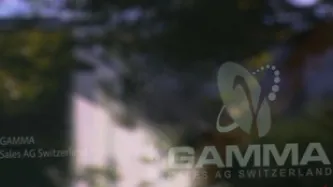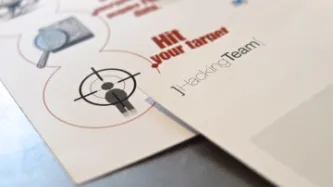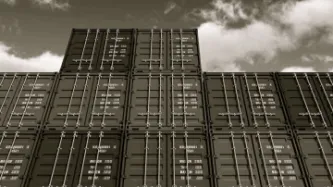Search
Content type: Press release
Governments across Central Asia have deployed advanced surveillance systems, including monitoring centres capable of spying on an entire country's communications, according to a new investigative report published today by Privacy International.
The comprehensive report, “Private Interests: Monitoring Central Asia”, contains personal accounts taken by Privacy International detailing how Central Asian governments use electronic surveillance technology to spy on activists and…
Content type: News & Analysis
Privacy international is proud to release “Private Interests: Monitoring Central Asia”, a 96-page report detailing its findings from an extensive investigation into electronic surveillance technologies in Kazakhstan, Kyrgyzstan, Tajikistan, Turkmenistan, and Uzbekistan.
The report brings together the findings of PI's team of investigative researchers, consultants, and technical, legal and policy experts, and is the outcome of consultations with confidential sources, regional experts,…
Content type: Press release
Privacy International, Reporters Without Borders, Digitale Gesellschaft, FIDH, and Human Rights Watch welcome news that the European Commission will move ahead and add specific forms of surveillance technology to the EU control list on dual use items, thus taking steps to finally hold companies to account who sell spy equipment and enable human rights abuses.
These important steps demonstrate that policymakers are beginning to wake up to the real harm that exists…
Content type: News & Analysis
Thousands of innocent people in London have had their communications spied on and collected through the use of invasive mobile phone surveillance technology, called IMSI Catchers, according to a recent report by the Times.
IMSI Catchers are no longer, and have not been for a while, a law enforcement secret. They have been featured crime dramas like the Wire and in movies such as Zero Dark Thirty. For years, the German Parliament has publicly received the number of IMSI Catcher…
Content type: News & Analysis
The publishing of materials from a support server belonging to surveillance-industry giant Gamma International has provided a trove of information for technologists, security researchers and activists. This has given the world a direct insight into a tight-knit industry, which demands secrecy for themselves and their clients, but ultimately assists in the violation human rights of ordinary people without care or reproach.
Now for the first time, there is solid confirmation of Gamma's…
Content type: News & Analysis
Last year, UK-based surveillance company Gamma TSE sold the Indonesian military US$ 6.7 million worth of equipment as part of the military's weapons modernisation effort. As early as 2005, Indonesian officials were soliciting the advice of a close partner of Gamma, Germany-based Elaman, to create technical surveillance unit (TSU), according to a white paper published as part of the WikiLeak SpyFiles and found in the Surveillance Industry Index.
Gamma and Elaman are…
Content type: News & Analysis
Global problems require global solutions. One of the significant emerging threats to human rights and democracy today is the incredible and mostly unaccountable spread of surveillance technologies.
The rapid proliferation of these systems has created a shadowy billion-dollar industry, where companies sell spying equipment with impunity to authoritarian regimes, who wield them against journalists, political activists, and human rights defenders.
Given the scale and international scope of this…
Content type: News & Analysis
Facing intense scrutiny from a Swiss government inquiry into the human rights impact of the commercial surveillance trade, companies have packed up and are no longer attempting to export their spying technology from Switzerland.
Speaking with St. Galler Tagblatt, one of Switzerland’s largest German-language daily newspapers, government spokeswoman Marie Avet confirmed that the companies have cancelled export applications for surveillance technology - including all applications for…
Content type: News & Analysis
Only a few days after it was reported that intrusive surveillance technology developed and sold by Italian surveillance company Hacking Team was found in some of the most repressive countries in the world, Privacy International has uncovered evidence which suggests the company has received over €1 million in public financing.
It has come to Privacy International’s attention that Hacking Team appears to have received €1.5 million from two venture capital funds originating from the Region of…
Content type: News & Analysis
The 'GSOC saga' began a number of weeks ago with the revelation that the oversight body of the Irish police force, the Garda Siochana Ombudsman Commission (GSOC), may have been the target of sophisticated electronic surveillance. A security company, Verrimus, found that there was evidence that an IMSI Catcher device may have been deployed in the vicinity of GSOC's offices which could have intercepted all mobile phone communications of its officers and anyone visiting the offices. Following the…
Content type: News & Analysis
Over the past half year, Privacy International has been investigating the sale of surveillance technology made by South African company VASTech to Libya and what role the government had in promoting and developing the system. Unfortunately, the government has been slow to respond to our questions and has offered only vague answers. This has done little to ease our concerns about the part they played in the development and export of mass surveillance technology to a military regime with a…
Content type: News & Analysis
UK parliamentary select committees are charged with overseeing the work of government in relation to particular topical issues or the work of particular departments. When it comes to UK Government policy on arms, it’s the Committees on Arms Export Controls (CAEC) that's responsible: a conglomeration of four select committees made up of serving Members of Parliament that collects evidence and conducts an inquiry into developments in export control policy and the preceding years’ exports of…









